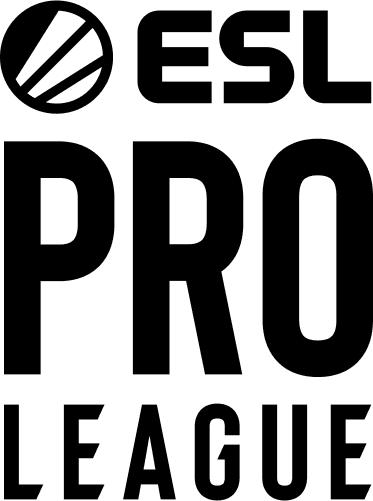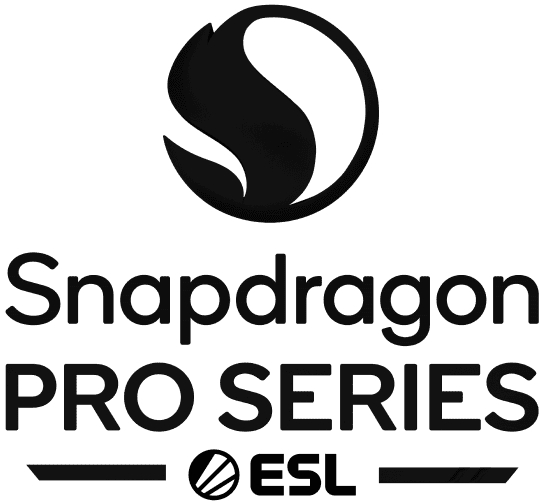So you’ve been up and running for a few months now, streaming, commentating on online tournaments (of which there are plenty to cover!) and you then get invited to come to an offline event. For the first time in your life, you will be thrust in front of a crowd in a live setting.
Offline events range from small studio-based efforts to large-scale productions on massive stages in football stadiums, such is the modern way with esports, but whatever the setting and scale, it’s going to be very different from the casual commentary you’ve been doing online from the comfort of your bedroom.
At an offline event there are a number of key differences, including:
- A crowd
- Sponsors
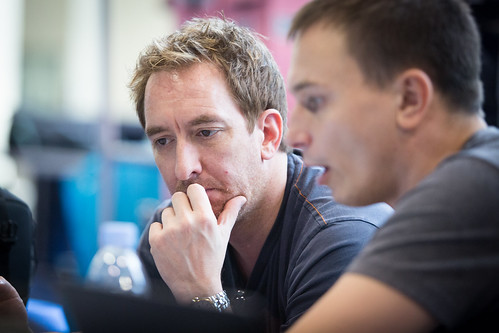
- Journalists
- Producers and production members for lights, audio and cameras
- Multiple cameras
- In-ear devices
- Show rundowns and/or scripts
- A dress code
So how do you deal with all these?
Language
In addition to all these differences and depending on how you presented at home, you’ll most likely have to alter your presentation. The first and most obvious aspect of this is vocabulary.
I don’t mean you need to dumb down the commentary - far from it - but you’ll need to consider such things as the event having sponsors, there being young people in the crowd and the presence of the mainstream press, particularly at large events. All of this means you need to moderate your language, especially if you’re used to swearing on your regular online stream.
The crowd

A crowd is a wonderful thing for an esports broadcaster: hopefully you’ll be with them or facing them rather than stuck backstage so you can use their noise and hype in a positive way in your commentary. I don’t recommend specifically asking them to cheer all the time (it’s actually pretty horrible to hear “let me hear you cheer!” and similar phrases) but through your voice and commentary you can invite it. Great plays deserve great commentary, and the crowd will add to this feeling, hopefully hyping you up, too. I’ve always felt a great crowd helps commentators feed off the emotion, hype and feel of the match to deliver something much better than they would be able to at home.
It can, of course, be nerve-wracking the first time around, but if you do find the crowd to be unnerving, focus on the role, put the headphones on and concentrate hard on the game itself. Getting used to the crowd and using the energy it can provide you with takes longer for some than others.
Production differences
Having a producer or director is a real help for a commentator. Although you have to do everything yourself at home, these guys allow you to fully focus on the actual role of commentating at an event. Everyone is there to make your job easier and handle all of the other production issues that come up. You should strike up a good relationship with your production team, get to know them, understand what roles they do and then work with them to ensure you are comfortable, your headset works properly, volumes are good and also that you know what’s coming next.

Often you’ll find yourself doing things in the show that you perhaps might not have done before, such as doing proper throws and standing in front of a screen to explain pieces of play in replays. You should embrace all of these things but ensure you know what is expected of you. You also need to ensure you can hear everyone you need to, including the producer in your ear, otherwise mistakes can happen very easily.
Producers do so much more to ensure the overall delivery of the show is great, but the relationship you build with them should be one of trust. They have your back, you have theirs. You’ll find yourself saving them occasionally, but they usually save you much more often!
On a good show, you’ll also be given a show rundown and possibly even a script. These are essential to ensure everyone - you, the producer, the camera guys, the sound, lights, etc. - are all on the same page at any given point in the show. Big events are complicated beasts, and ensuring you are familiar with the show rundown is essential.
Here is the first page of a rundown of a show we produced at ESL to give you an outline and idea of what it includes. You can even use this as a basis for writing your own as this will help with show flow and planning, even when producing for yourself at home.
Dress code
It’s important to find out what this is before you even pack your suitcase to fly to the event. It’s also very important to make sure you are comfortable with what you wear so it doesn’t become a distraction while you are commentating.
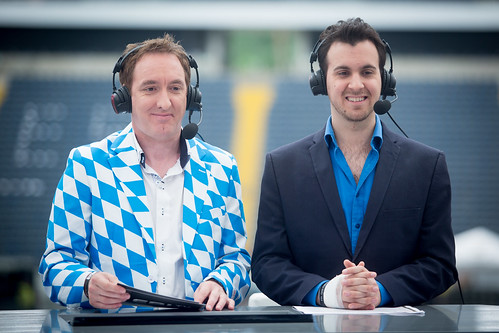
If a tournament insists on a full dress code of suit, tie and jacket, you’ll just have to get used to it, so spend some time wearing it at home first so you understand what’s annoying about certain pieces of clothing and can get it fixed before you go to the event. Get others to help you shop if it’s not clothing you would ordinarily buy yourself.
Cameras!
One of the biggest differences will be the presence of cameras, cameras everywhere! At home, you’ll likely have gotten used to one small camera and started to use it pretty well. At an event, there can be dozens of cameras and sometimes at least three of those will be pointed at you at once. It’s not always a comfortable feeling, either, especially outside the safety of your home setup - I well remember my first time on camera as it was about as comfortable as having my nipples blowtorched.
When you attend tournaments in person, you will be expected to go ‘on camera’ at some point to deliver analysis or your views on the games ahead or just played out. You may even appear in something called PIP (picture in picture) - although I personally don’t like it, some broadcasters put their commentators in PIP during the actual match. If, like I was initially, you aren’t comfortable on camera, remember that very few people are and it’s likely anyone put in the same position would feel the same.
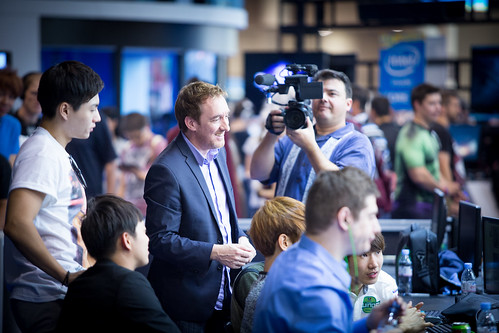
The next thing to do is get help. Help comes in the form of advice from your peers and fellow broadcasters (who are likely to have felt just like you do when they first started). It also comes in the form of reading books on TV production (particularly sports production), biographies of professional sports commentators (I can particularly recommend Murray Walker’s) and watching plenty of varied sports and watching and listening to how the commentators work.
You can, fairly inexpensively, enrol in a local college course, either full or, like I did, part time in the evenings for a few weeks. A general media course is enough for most, but you can take it to degree level if you are academically minded. In fact, a number of commentators run media degrees alongside working for a gaming broadcaster, and the two help each other.
If in any doubt, look right down the barrel of the lens in the camera - you can’t go too far wrong from there. Just ensure you’re looking at the right camera (usually the one with a red light on top of it if it’s live on you) and listen to your producer for further guidance on which will be being used.
It might be that you take to it easily and none of the above will apply to you, in which case, great - you are probably a natural-born showoff, and that’s pretty cool for the career you’ve chosen!
The voice
I won’t lie to you here: the voice is important. In other words, if you don’t have the right voice for a broadcaster, you start with a disadvantage which means you will have to work twice as hard as someone who was born with one.
There are things you can do to improve several aspects of your voice, but even if you do have the voice for broadcasting, it doesn’t mean you will automatically be successful - it just makes it a little easier to start with. You also have to remember that gaming communities are the most diverse and critical people in the world. As such, even if you do have the voice, some will still not enjoy it and you just have to learn to live with that - you can’t possibly please everyone all the time.
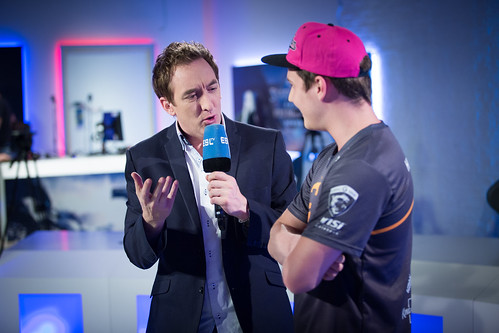
If you’re not sure if you have the voice, check with someone established in commentary and they will be able to tell you. That said, some do have success with what I would call ‘non-broadcasting’ voices, though as mentioned previously, they have to work terrifically hard initially just to get into the business.
What can I do to improve my voice?
Professional lessons (I am not kidding here) called elocution lessons are the extreme end if you really want to broadcast professionally, but there are things you can do to improve things without spending money such as working on your inflection, projection, vocabulary and pacing, all of which are very important to an esports broadcaster.
Many are not aware of these skills even when they use them properly, but when used and improved upon they can make up for shortfalls in a non-broadcast voice. Likewise, they are essential skills to perfect even if you do have a TV-friendly voice.
Inflection
Figure out what you are saying and how you want it delivered. If you want to come across as more confident (for whatever reason), practice how to end a sentence on a downward inflection. If you want to use surprise in your voice or exude excitement, learn how to end the sentence on an upward inflection.
Projection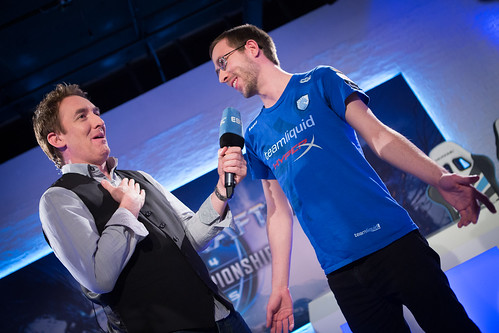
Many people get confused between projection and volume, and the two are very different. Projection can help with improving volume, but its main purpose is to ease the strain on your voice while still allowing those listening to fully hear and understand you.
Enunciation
It sounds simple, but open your mouth wider. It will help you enunciate much better, and if you find yourself tripping over words when talking quickly, opening your mouth and extending your jaw will help you with this. You can also improve enunciation by breathing better and for example just before you start on what you think will be a long period of fast talking.
Remember that it isn’t just your mouth or your vocal chords but also your tongue control that matters when enunciating properly. If you work to keep it wider and flatter, this will also help.
You can also try standing up, something many of today’s commentators often do as this allows you to open your lungs wider and be more expressive at the same time. You’ll be amazed by how much easier it is to enunciate when standing up compared to sitting (slouching, usually) in a chair.
Pacing
Depending on the type of game you cover, controlling the pace of the commentary can also help your voice. Speeding up and slowing down not only helps the flow of the commentary but also aids you in gaining control over your voice. It can inject excitement at the right time and through not only speaking fast at the right time but also knowing when to not talk at all.
Saving your voice (AKA avoiding a sore throat)
Over time and particularly during an event weekend or long period of broadcasting, it is inevitable that you will get a sore throat. Almost all of the commentators I have worked with, including me, have got a sore throat at some point during a long event.
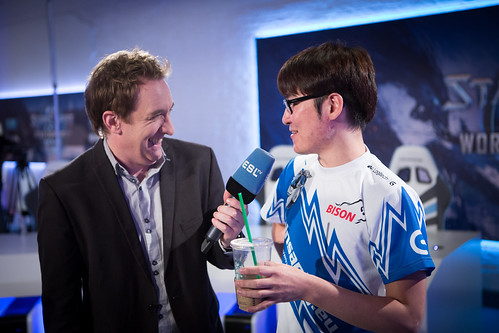
You can avoid this most annoying of afflictions by adjusting your attitude towards the weekend of an event, for example:.
- Avoid excessive work day after day. Obviously the more you do, the more likely you are to stretch your vocal chords, so avoid overworking them, take a few days off during the week and try not to do seven days a week for ten hours a day.
- Work on how you actually use your voice. Most commentators, especially in the early days, will shout. You don’t actually need to shout! You can learn how to project your voice without shouting. You can also learn how to use your body better to complement this.
- Learn how to use combined breathing. This is the art of breathing through both your nose and you mouth at the same time. If you get a sore throat from commentating on a regular basis, it’s likely you are breathing through your mouth more than your nose. Doing so leads to a dry mouth and scratchy throat, which in turn restricts your vocal chords. If you breathe through your nose exclusively, it means you can’t take in enough air, which can in turn choke your vocal chords.
- Understanding the diaphragm. Many singers understand how to use their diaphragm, and doing so as a commentator can really help when the pace of a piece of play goes through the roof. To understand this better and learn how to do it, read this excellent piece on how to sing from your diaphragm.
- Avoid alcohol, smoking and parties! I know it’s boring, but I have lost count of the amount of times commentators (including me!) have lost their voice on the final day of an event due to being out the night before at a party with loud music. Attending such a party usually means you have to shout to be heard, and in turn strains already-strained vocal chords. I can’t give you any empirical, scientific reason as to why you should avoid alcohol and smoking, but logically and long term neither are good for your voice.
- Medicate when required. There are some special medicines you can buy, including clever throat sweets, which can help save you if you do suffer from a sore throat, but the best type of medicine is preventative. Using hot or warm water can help lubricate the throat and honey in tea (if you like that kind of thing) can also do a lot to help prevent cracking and scratching in the throat. I wouldn’t recommend taking strong medicine during an event, however, and obviously you should seek medical advice when taking anything stronger than cough sweets. I’ve used VocalZone for a few years now, and they help a great deal if you do suffer a sore throat and need to get through the day.
Natural talent versus hard work
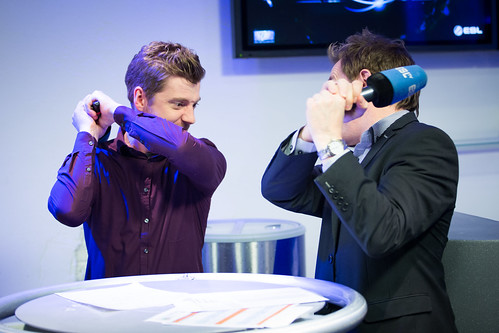
As I mentioned in the previous chapter, natural talent helps a great deal in esports broadcasting, especially as we have a very low entry level - you just sign up for a Twitch account and start broadcasting instantly.
I personally believe you do need at least some natural talent, but I also come from the school of ‘not very naturally talented’ broadcasters, and although it may seem odd now, I do have more than a dozen years of doing this and have had some amazing tutors along the way. I also worked bloody hard to be good at this!
Hard work is not going to make up for all shortfalls in your commentary, mainly because you will be judged by those in the community who both like or loathe you. There have been commentators in the past who worked very, very hard but didn’t have an ounce of natural talent and eventually gave up. I’ve also seen some incredibly talented broadcasters do very little work to improve but be able to just turn up and deliver a great performance because of their natural talent and personality.
The perfect esports commentator is, of course, one who combines both, but despite this there aren’t many of them in any game.
NEXT TIME: Next time, we’ll take a look at the following:
- Style and technique
- Dead air
- On-camera introductions
- Throws and tosses
- Chemistry
- Storylines and how to create and develop them
You can also check out the previous parts of my guide to being an esports broadcaster here:


